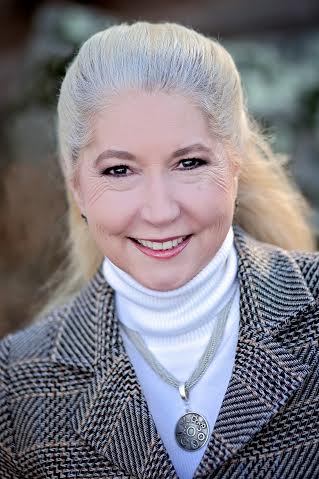Today SevenPonds continues our two-part interview (read part one here) with Reverend Lucinda Martin, founder of the Association of Interfaith Ministers, Vows and Kisses and Graceful Mournings. Based in Northern California, Reverend Lucinda Martin became an Ordained Interfaith Minister through One Spirit Seminary in New York, New York. As a “non-religious” spiritual minister, she embraces all spiritual traditions and symbolic rituals and specializes in ceremony rituals in her work as a professional celebrant. In the final half of her two-part interview, Lucinda discusses her process in helping grieving loved ones with planning meaningful end-of-life ceremonies, how working with celebrants can benefit grieving loved ones as well as some of the challenges she has faced as a celebrant.
Zoë: What is your process when it comes to working with grieving loved ones to plan a meaningful event to honor the life of the person who has died?
Lucinda: Number one is to be an excellent listener. It is important to know what questions to ask as well as how and when to give suggestions for creating meaningful ceremonies, rituals and altars. It is very important to make sure the minister is someone who is really committed and devoted to the needs of the family. That is what makes the difference from a mail order minister.
Zoë: What are the advantages of working with a celebrant to plan memorial services? What is the average cost for utilizing the help of a celebrant?
Lucinda: The advantages of working with celebrants would be the experience they have and their abilities to provide appropriate suggestions based on that experience and being able to communicate with the family. A celebrant has the ability to help them plan what can be a daunting task. As for costs, it is important to discuss fees with the officiant. As Interfaith/Interspiritual Ministers providing support for families that have no affiliation with a church or minister, it is important to understand that we are not receiving any salaries as clergy of a religious organization. Over 40 percent of our population has no affiliation with a religious organization and many express they are “spiritual but not religious” and quite a few are agnostic or atheist.
They desire a meaningful ceremony and rituals and need to know how to find independent ministers that are devoted to their education and service. We need to provide education and advertising, so people know we are here for them. It is for this reason we need to charge in addition to the many hours we devote in meeting with families, creating the ceremony, transportation and grief support. When interviewing officiants, keep in mind, the old rule of “you get what you pay for” does apply, and this is such an important life transition it seems to me not an area to cut costs in.
Lucinda’s 4 Tips for Planning a Memorial Service
1) Find a professional Celebrant or Minister that is a good listener and includes grief support in addition to creating a service.2) Make sure the celebrant is providing a detailed agreement outlining the expectations and fees.3) I personally believe creating a meaningful altar supports the grief process – the family can create this and hopefully the celebrant will assist with this, guide them and on some occasions create it for the family.4) Ensure the officiant provides an outline for the celebration of life ceremony, so it is clear whom will provide the eulogy, minister’s address if including one, poetry/readings, and is sensitive to knowing how to help guests speak up and share their stories. Often folks are very shy to do so and in their hearts they want to. A skilled celebrant will know how to gently draw people out.
Zoë: What are some types of challenges that you have encountered as a celebrant, whether during the planning process or the ceremony itself?
Lucinda: I had one family that did not want to include any type of ritual. Even though I knew it would benefit them due to their loved one’s sudden passing, I don’t think it’s appropriate to push my agenda. Therefore, I surrendered to prayer, meditation and synchronicity for them to realize how helpful ritual would be. I did not know — it was a result of surrendering to prayer — that the fellowship that the late loved one was a member of was going to include their ritual as a surprise to the family. To my surprise, upon my arrival, I was notified by the Club President they were surprising the family with a tradition or ritual. The family loved the ritual, which was that members of the fellowship gifted evergreen leaves to the immediate family for them to bring up to the altar.
Sometimes, the family is not in agreement of the details and delivery of how the ceremony should go. If you’re skilled in facilitating conflict resolution, then you’re able to make the process go smoother. It’s kind of like a wedding where the rule is: couples plan the wedding, and it doesn’t matter what others want. In end-of-life ceremonies, you have to determine who the decision maker is, and you have to make sure everyone agrees on who that is.
Zoë: Do you have any words of wisdom for those planning memorial services?
Lucinda: Don’t plan the memorial or celebration of life ceremony too soon. Allow yourself time to process your loss and give loved ones far away the ability to make plans to travel to the ceremony. Some people rush it too quickly. Don’t feel like you have to rush. I don’t know why there’s so much pressure to rush it. I would suggest that they plan it to be at least three weeks out. The ceremony and its planning can be a joyful and helpful process in aiding the grieving process.
Zoë: Thank you for speaking with us!
Lucinda: Thank you.
A Note From Our Founder of SevenPonds’: We’ve received comments from some of our readers, expressing their concern that balloon releases are harmful to the environment and wildlife animals. Our subsequent research shows that it’s true, even biodegradable balloons can still take anywhere from six months to four years to fully decompose. While balloon releases have been a most lovely practice of the past, SevenPonds would like to suggest new updated ways of offering a release at a memorial service. Releasing balloons can still take place in a contained space such as a barn, home or commercial atrium where they cannot float away. We also recommend some lovely eco-friendly alternatives to balloon releases such as releasing of flower petals or paper boats, to name a few. Please check out our “Practical Tips” column where we may offer other beautiful and meaningful ideas for ceremonial releases. Thanks for joining in to help make the world a better place. –Suzette

 How Can a Celebrant Assist Grieving Loved Ones with Preparing Meaningful End-of-Life Ceremonies? An Interview with Reverend Lucinda Martin, Part Two
How Can a Celebrant Assist Grieving Loved Ones with Preparing Meaningful End-of-Life Ceremonies? An Interview with Reverend Lucinda Martin, Part Two




 Our Annual Seven Holiday Gifts for Someone Who Is Grieving, 2024 Edition
Our Annual Seven Holiday Gifts for Someone Who Is Grieving, 2024 Edition
 “Making Mobiles” by Karolina Merska
“Making Mobiles” by Karolina Merska
 “Hands Up to the Sky” by Michael Franti & Spearhead
“Hands Up to the Sky” by Michael Franti & Spearhead















Great and inspirational post. Thanks for sharing this conversation with us.
Report this comment